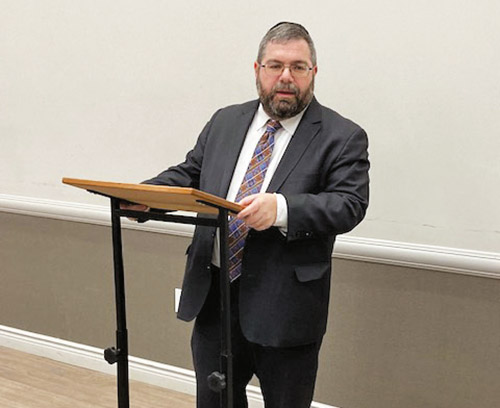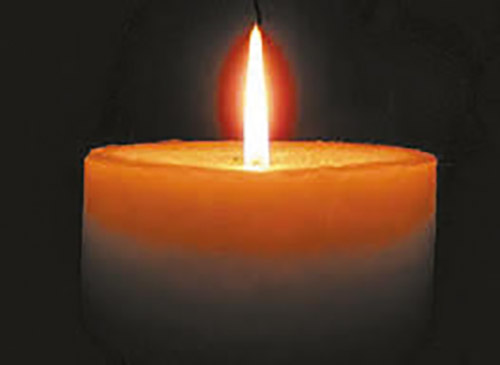
Teaneck’s traditional Zayin Adar seudah convened last Thursday, March 2, at the Young Israel of Teaneck. The Zayin Adar seuda is attended primarily by members of the local Chevra Kadisha. The gathering serves as a source of chizuk and inspiration in recognition of the holy work they do, the ultimate chesed shel emes of attending to the final needs of a person prior to kevurah.
The program opened with brief introductory remarks by Rabbi Binyamin Krohn, rav of Young Israel of Teaneck, who also recently assumed the position of president of the Rabbinical Council of Bergen County (RCBC). The group was then addressed by the keynote speaker for the evening, Rabbi Daniel Z. Feldman, rosh yeshiva at the Rabbi Isaac Elchanan Theological Seminary at Yeshiva University and instructor in the Sy Syms School of Business. Rabbi Feldman also serves as the spiritual leader of Ohr Saadya of Teaneck.

Rabbi Feldman pointed to the efforts of Moshe Rabbeinu to retrieve and transport the remains of Yosef to Eretz Yisrael as being the paradigm for the concept of a chevra kadisha. In busying himself with this mitzvah and fulfilling the last wishes of Yosef, Moshe defined the meaning of chacham leiv (being wise of heart) and illustrated how doing a mitzvah is transformative to the person. He also thus taught klal Yisrael the sensitivity and importance of this mitzvah and thereby earned the honor of reciprocity by Ha Kadosh Baruch Hu in “personally” doing this very same chesed for Moshe.
Rabbi Feldman also pointed out that we see earlier in the Torah a similar form of this chesed as Avraham Aveinu made arrangements for the burial of Sara Imeinu, sparing no expense, securing the best possible location, and thus guaranteeing a final resting place for the future two generations of leadership. The reward, he explained, was twofold because it was eternal and cannot be repaid by the recipient of this kindness. The reward for the mitzvah is the mitzvah itself, which is eternal.
The chevra kadisha, he said, also expand their chesed to the survivors by transforming the shiva home into a place of comfort for both the mourners and the departed’s neshama (also present at the shiva house). They help by providing low chairs, sometimes a sefer Torah and Aron for minyanim, covering mirrors, etc. facilitating the observance of shiva in the traditional manner.
Rabbi Feldman also explained why the protocol is for a shiva visitor to wait until they are spoken to by an aveil (mourner), and not to initiate the conversation. By waiting to see how the mourner acts and what they say, a visitor can understand “where the mourner is,” and respond more sensitively to the mood and needs of that mourner.
Further, he noted, the tasks managed by members of the chevra kadisha are more difficult, less popular and require intensive devotion and training. He suggested that this sort of mitzvah increases the spiritual sensitivity of the doer, thereby following the path of becoming a people of chesed, which is one of the Torah’s prescribed and over-arching goals.
By Ellie Wolf









